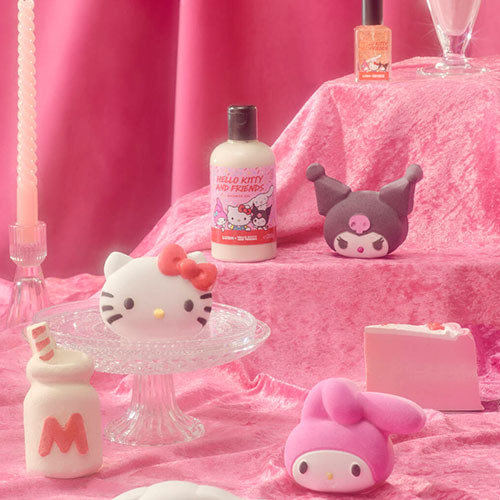Start Licensing’s Ian Downes on why sometimes being a fan in licensing can pay off.
I had a licensing life before Start Licensing.
One chapter of it was when I was managing director of Fox Kids Europe’s consumer products business in the UK and subsequently across Europe. Despite the role having an ‘executive’ element to it, I still stayed in touch with the deal making side of licensing and monitored new business opportunities. As well as being a ‘licensing professional’ I was and remain a fan of pop culture and spent quite a bit of time in shops like Forbidden Planet, plus some time searching online for interesting merchandise.
That’s how I first got to know Forbidden Planet International and Underground Toys’ Andy Oddie. We first did a deal on a range of Power Rangers items sourced from US licensees. Andy’s Underground Toys did what it said – found underground toys. To clarify it wasn’t specialising in toys related to the London tube it was finding toys, characters and franchises that were off the radar or underground. Ones he knew that had an audience, which was generally a fan driven one. Taking this approach lead Underground Toys to distribute Funko’s vinyls figures and eventually become part of the Funko family.
Often properties in this category were referred to as cult, niche or specialist. Some 17 or so years later it is interesting to see how many of these properties are now mainstream and how products created with a fan market in mind are flourishing. Funko is, of course, a shining example of this and it is hoped that they are able to kick on post COVID-19.
Generally Funko has been a great supporter and outlet for licensing. Fan-based merchandise has also had a boost from the success of events like Comic Con and the growth in online selling. In years gone by a difficulty was getting retail space and attention. Now online sites coupled with digital marketing mean that the fan market is easier to reach. Platforms like Netflix, Amazon Prime and Apple TV are also creating new success stories that are translating into licensing programmes. That said there is still some resistance from licensees to embracing properties that are not from the mainstream nor ones that are supported by the ‘big retailers’.
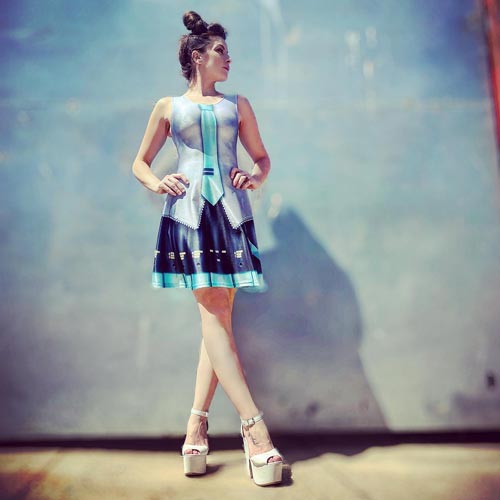
Against this backdrop it is interesting to see what rights holders and licensees are doing to capitalise on fans’ interest in certain properties and how a community of licensees has developed to service the market. Often entrepreneurial fans have become successful licensees. Their passion has inspired them to develop licensee companies and to produce products they know other fans will respond well to. There is a whole host of licensees out there making the most of fan-driven opportunities.
Licensing agents have also recognised there are good opportunities to represent and develop these kind of franchises. Reemsborko is a very good example of this new breed of agency. The agency’s founder Max Arguile highlighted a couple of examples from his recent activities. Working with Wild Bangarang and Trademark Products, Reemsborko has developed an apparel range around the virtual character Hatsune Miku.
The range includes leggings, dresses and t-shirts. The range reflects the different requirements and occasions that fans have. A fan might buy into the t-shirt whereas a superfan would probably buy the leggings and dress. The latter items allow superfans to indulge their fandom more deeply and on different occasions, maybe when exercising or at fan events. Trademark’s products are on sale via Forbidden Planet, while Wild Bangarang’s will be online.
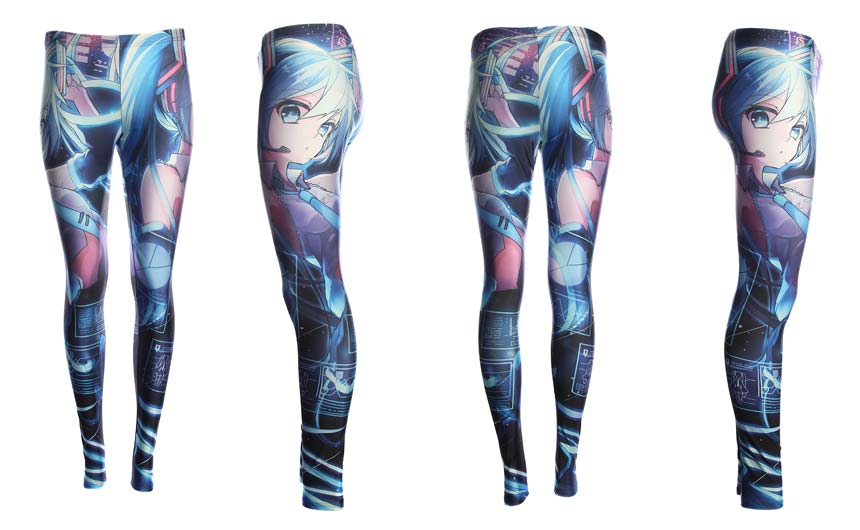
Selling online only is not a major issue as fans will seek out products and in fact having to find products is part of their appeal. Licensees like Wild Bangarang are efficient users of social media.
Max also identified another property as an interesting one to note. He is licensing Dark Horse Comic’s Black Hammer. This is a good example of a property that is very strong in its category and genre but doesn’t enjoy mainstream support. Not so long ago the licensing journey for Black Hammer may have stopped before it started. However now online selling, print on demand and expert licensees are opening up new opportunities for this kind of property. There is film and TV activity in the pipeline for the property, but as we all know this kind of thing can take time.
Max commented on this and how this impacts the licensing journey: “Right now (for obvious reasons) apparel companies in both the US and the UK are reluctant to commit an MG for Black Hammer, preferring to wait for the increased activity of the TV series and the films. Not a problem, but that is two to three years away and the reality is that the fans are all out there right now with no way of showing their love for the comic.
“The creators and the publisher, between them, have over 500,000 followers on Twitter alone. They have all agreed to support the release of new products via their social media accounts. First out the gate will be a POD apparel licence launching with a range of 40 different designs (all the comic covers from the first two story arcs). This should keep the fans happy as they can order their favourite cover from the comfort of their own home and each garment only goes to print when that item is purchased, so there is no wastage. While this is circumventing traditional retail, there is no reason, when this proves a success, that we couldn’t repeat it for bricks and mortar.”
There are other good examples of licensees who have found innovative ways of tapping into fan-driven properties. A good example is apparel company Last Exit to Nowhere. It creates bespoke designs that reflect film and TV storylines, locations, quotes, plot twists and ‘in the know’ story features. It is looking to give fans a fan experience in apparel and move beyond the standard t-shirt.
It is worth noting one of the testimonial quotes on the website from Collider.com: “These references can only be spotted by the sharpest of movie fans and create an unspoken bond between the wearer and the person envying the wearer for wearing such a cool shirt”.
This quote really gets to the essence why sites like Last Exit to Nowhere work. They get fans and understand what motivates them focusing on detail and translating that into compelling design work.
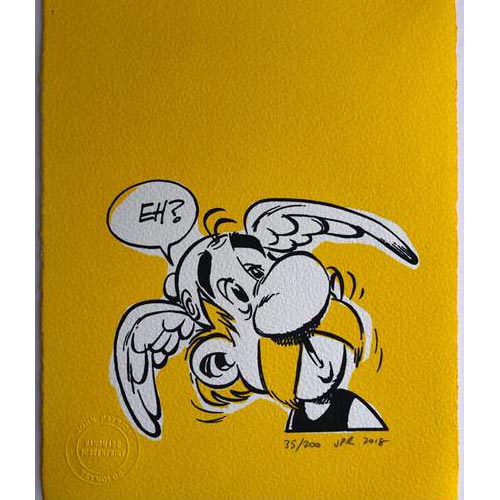
Wall art, prints and posters are also a good place to see how licensees are embracing the fan world and developing products that appeal to fans. I work with specialist screenprinter Comic Art on Asterix.
Comic Art looks quite deeply into the design aspects of a property. In the case of Asterix, it will look at covers and comic strips focusing on poses that will resonate with fans and translating them into attractive screenprints. It adds its own styling to them by using a range of colours that move on from the original and also hand finish the prints which means fans feel they are getting something really original.
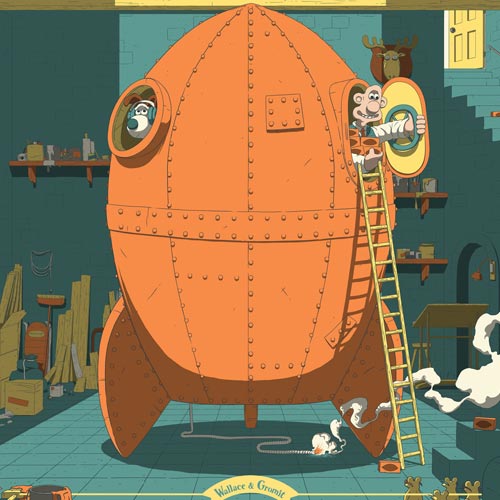
Another example is Vice Press which works with the likes of Aardman on Wallace & Gromit and Rebellion on 2000 AD.
In order to offer consumers something fresh, Vice Press commissions artists and illustrators to create their unique take on the properties its features. Marketing wise this allows them to market to fans of the property and the artist.
A key point is that the artworks are developed in tandem with the IP owners to ensure they feel comfortable and even though the art is original it still reflects the essence of the property. Again Vice Press is an expert in social media and efficient at reaching fans. Having good product is one thing, but being able to tell fans about it is equally important.
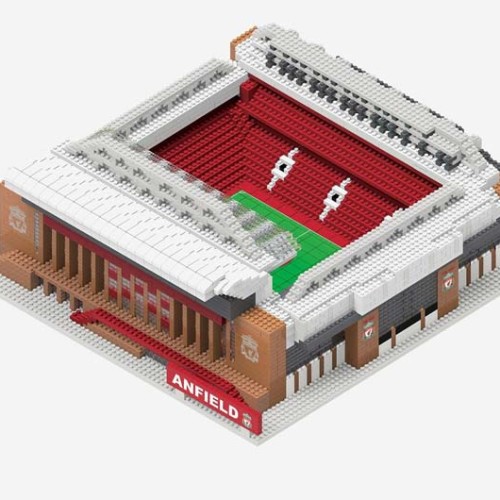
Fan merchandise isn’t confined to entertainment properties, of course. Companies like FOCO have developed a strong business in sports licensing catering for fans of clubs from sports like football, baseball and American Football. They operate in a dual market situation working with clubs to create and supply products for club shops, but taking the clubs beyond their distribution into new retail channels.
FOCO has also developed the business creatively in NPD terms to offer a broader range of products and tapped into areas like collectables and construction kits. A good example of this is the range of construction kits under the BRXLZ brand name featuring famous stadiums like Liverpool’s Anfield. These sort of products work well as gifts, but also self purchase. They allow fans to buy into their passion for their club.
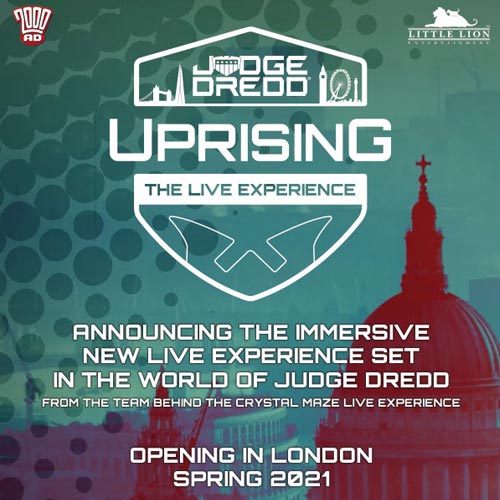
Finally even after 25 years plus in licensing – I had a licensing life even before Fox Kids – it is very satisfying to know that cold calling still pays off. In my capacity as a consultant to Rebellion Publishing – owner of 2000 Ad and Judge Dredd – I called up Little Lion Entertainment to explore how Rebellion and Little Lion might work together. Thankfully Little Lion took my call and engaged in a dialogue.
Shuttle forward a year and this week there was an announcement that Little Lion Entertainment will be creating and opening Judge Dredd Uprising, an immersive live‑action attraction heading to London in 2021.
This encourages me to keep trying with those calls, but it is also a further example of how licensing can bring IP alive and extend the fan experience. Sometimes it is good to be a fan in licensing.
Ian Downes runs Start Licensing, an independent brand licensing agency. His Twitter handle is @startlicensing – he would welcome your suggestions for what to look out for.




























